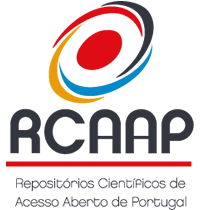Impact of cannabidiol on viability of normal and tumorigenic human kidney cells: are the effects serum-dependent?
DOI:
https://doi.org/10.48797/sl.2023.29Keywords:
PosterAbstract
Background: Cannabidiol (CBD), the main non-psychotropic cannabinoid of Cannabis sativa, has several pharmacological actions with therapeutic potential, including antitumor effects [1]; however, its effect on renal cell carcinoma (RCC) is unknown. Considering that recent research suggests that cell culture conditions, particularly the presence of serum in culture medium, may modulate the cannabinoids' antitumor effects [2], the potential influence of this growth supplement on the response to CBD should be explored. Objective: To fill this gap, we investigated the sensitivity of human kidney cells to CBD in different growth conditions. Methods: CBD’s cytotoxic profile was assessed in non-tumoral (HK-2) and tumoral (Caki-1 and 769-P) human renal cell lines, using zero or five percent FBS. The MTT assay was performed at different time-points (24 and 48h) after cells were exposed to a wide range of CBD concentrations (1-100 uM). Results: CBD induced a concentration-dependent decrease in cell viability across all cell lines and conditions. After 24h at 5% FBS, it was found that HK-2 and Caki-1 cells were the most sensitive to CBD toxicity, followed by 769-P cells (IC50 values were respectively 14.5, 14.8, and 20.0 µM). In a serum-free medium, after 24h, IC50 values markedly decreased (5.2, 7.6, and 6.8 µM for HK-2, Caki-1 and 769-P cells, respectively; p<0.004 vs. 5% FBS), demonstrating that FBS has a large impact on cellular sensitivity to CBD. IC50 values obtained for 48h were similar since no time-dependent effect was observed (p>0.05). Conclusions: Our findings support that CBD has in vitro anticancer potential against RCC cells, with greater cytotoxic efficacy in the absence of serum. However, CBD cytotoxicity was not selective for tumoral cells, which may be a significant limitation to its safe use in clinical practice. More research is being conducted to investigate the cell death signaling pathways activated by CBD in each cell line.
References
1. Seltzer, E.S.; Watters, A.K. Cannabidiol (CBD) as a Promising Anti-Cancer Drug. Cancers 2020, 12, 3203.
2. Sainz‑Cort, A.; Müller‑Sánchez, C. Anti-proliferative and cytotoxic effect of cannabidiol on human cancer cell lines in presence of serum. BMC Res Notes 2020, 13, 389.
Downloads
Published
How to Cite
Issue
Section
License
Copyright (c) 2023 D. Sousa, F. Amaro, A. M. Araújo, M. Carvalho

This work is licensed under a Creative Commons Attribution 4.0 International License.
In Scientific Letters, articles are published under a CC-BY license (Creative Commons Attribution 4.0 International License), the most open license available. The users can share (copy and redistribute the material in any medium or format) and adapt (remix, transform, and build upon the material for any purpose, even commercially), as long as they give appropriate credit, provide a link to the license, and indicate if changes were made (read the full text of the license terms and conditions of use).
The author is the owner of the copyright.









